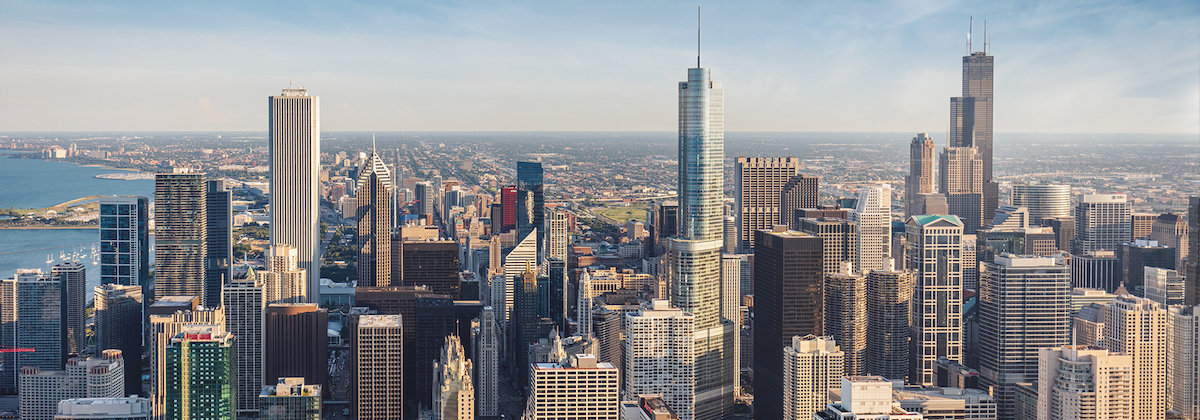
With very few exceptions, injured workers in Chicago are covered by the Illinois Workers’ Compensation Act. Workers’ compensation benefits included medical care and lost wages benefits. If the worker sustains a permanent, they can receive long-term benefits.
An important term injured workers must understand is maximum medical improvement (MMI). When injured workers reach MMI, their workers’ compensation benefits may end.
What Is Maximum Medical Improvement in a Chicago Workers’ Compensation Claim?

Maximum medical improvement is the point when your doctor determines that your condition has stabilized and no further medical treatment is likely to improve your condition. Just because you reach MMI does not mean you have recovered fully from your injuries.
Some injured workers reach MMI but have impairments or disabilities. They have healed as much as they are going to heal from their work injury. Unfortunately, they will experience the consequences of their work injury for the remainder of their lives.
Who Determines When an Injured Worker Reaches Maximum Medical Improvement?
Your physician determines when you reach maximum medical improvement. Neither the workers’ compensation company nor your employer plays a role in determining when you have recovered from your injuries. They do not play a role in deciding whether you sustained a permanent impairment when you reach MMI.
However, the workers’ compensation insurance company will likely want one of its physicians to assess your condition. Therefore, the company may ask for an independent medical examination (IME). If you refuse to cooperate, your workers’ compensation benefits may stop, and your claim for permanent disability could be denied.
The insurance company chooses who performs the independent medical examination. After the IME, the physician sends a copy of their report to your attorney and physician. If the IME agrees with your physician’s assessment, you may continue receiving workers’ comp benefits, or your attorney can negotiate a workers’ compensation settlement for a lump sum payment.
If your physician’s medical opinion disagrees with the results of the IME, your attorney files a claim with the Illinois Workers’ Compensation Board. A hearing is then held to resolve the dispute.
Illinois Workers’ Compensation Benefits Before and After Maximum Medical Improvement
While you receive treatment for your injuries, you might be entitled to temporary disability benefits.
If you cannot work at all during your recovery, you could receive temporary total disability (TTD), which equals 66 2/3% of your average weekly salary. If you can work with restrictions, you may receive temporary partial disability (TPD) benefits, which equals about 66 2/3% of the difference between your average weekly wages before the injury and now on light duty.
However, if you sustain a permanent impairment after reaching MMI, you could receive permanent partial disability (PPD) or permanent total disability (PTD).
Permanent partial disability is defined as the complete or partial loss of a body part or use of a body part or the partial loss of use of the body as a whole. Permanent total disability is the complete and permanent loss of use of both feet, legs, arms, hands, eyes, or any two such parts or a complete disability that results in the person being unable to do any kind of work.
Total disability benefits are based on 66 2/3% of your average weekly wages for the rest of your life. The amount you receive is subject to state minimums for PTD payments.
The amount you receive for partial disability benefits depends on the level and type of your impairment. The benefits equal 66 2/3% of the difference between what you can earn now with your impairment and what you earned before the work injury.
Workers’ compensation insurance companies dispute impairment ratings. They want to reduce the impairment rating whenever possible. Therefore, impairment ratings can have a significant impact on the amount you receive for a workers’ compensation claim.
Before accepting an impairment rating or workers’ compensation settlement, consult with an experienced Chicago workers’ compensation lawyer. It is in your best interest to have legal advice to ensure you are being treated fairly.
Determining Work Restrictions After Reaching Maximum Medical Improvement
Until you reach maximum medical improvement, you cannot know the extent of a work-related injury. You also will not know whether your impairment prevents you from working at all or whether the impairment restricts the type of work and/or the duration you can work during a single shift or workweek.
Your doctor or the workers’ compensation insurance company may use functional capacity testing to determine what restrictions are necessary for you to work. The evaluation determines your ability to perform certain work activities related to your job. If you need restrictions to perform your work duties, your employer must determine whether it can accommodate those restrictions.
In some cases, a worker’s impairment is so severe they might not be able to perform any activities that could earn an income. If so, they may be entitled to permanent disability benefits.
Schedule a Free Consultation With Our Chicago Personal Injury Lawyers
Were you injured at work in Chicago? If so, we want to help. Contact the Attorneys of Chicago Personal Injury Lawyers to schedule a free consultation to discuss your workers’ compensation claim. You can call us today at (872) 324-4375.
